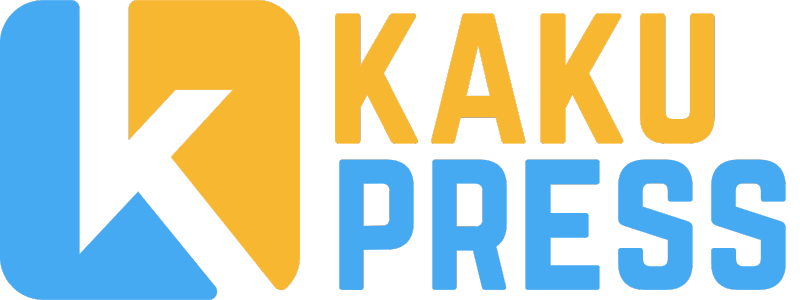Running a hospital is no small task. Beyond providing lifesaving care, hospitals must also manage complex administrative and financial processes to stay sustainable. At the heart of these processes is billing—a function that ensures hospitals are properly reimbursed for the services they provide. With the growing complexity of healthcare regulations, payer requirements, and patient expectations, many organizations are turning to hospital billing software to bring efficiency, accuracy, and transparency into the revenue cycle.
What Is Hospital Billing Software?
Hospital billing software is a digital system designed to manage the financial side of patient care. It streamlines and automates the billing process, from charge capture to claim submission and payment collection. Unlike simple billing tools, hospital billing software handles the scale and complexity of large healthcare facilities, which often involve multiple departments, high patient volumes, and a wide range of services.
Core functions include:
- Charge Capture: Recording all services, treatments, and procedures provided to patients.
- Coding Integration: Assigning the appropriate ICD, CPT, and HCPCS codes for accurate claims.
- Claim Submission: Preparing and sending claims electronically to insurers.
- Denial Management: Identifying and resolving rejected or underpaid claims.
- Patient Billing: Generating clear statements and providing payment options for patients.
- Financial Reporting: Offering insights into revenue, collections, and performance metrics.
By centralizing these functions, hospital billing software reduces manual work and ensures financial data flows smoothly across the organization.
Why Hospital Billing Software Matters
Billing in hospitals is more complex than in smaller clinics or practices. Multiple providers, specialties, and departments often contribute to a single patient encounter, making accurate charge capture and coding critical. Here’s why hospital billing software is so important:
1. Preventing Revenue Leakage
Missed charges, coding errors, or delays in claim submission can cost hospitals millions each year. Billing software ensures that every service is documented and billed correctly.
2. Improving Compliance
Hospitals must follow strict regulations and payer requirements. Software applies up-to-date coding rules and billing standards, helping avoid compliance violations or penalties.
3. Speeding Up Payments
Automated claim submission and real-time error checking reduce delays and improve cash flow, ensuring hospitals get paid faster.
4. Enhancing Patient Experience
Clear, accurate bills and accessible payment options make the financial side of care less stressful for patients, building trust and satisfaction.
5. Reducing Administrative Burden
By automating repetitive tasks, billing software allows staff to focus more on patient care and less on paperwork.
Uses of Hospital Billing Software
The scope of hospital billing software extends across many operational areas, including:
- Emergency Department Billing: Handling high patient volumes and fast-paced services.
- Inpatient Billing: Managing long stays with multiple providers and complex care plans.
- Outpatient Services: Coordinating billing for same-day treatments, imaging, or lab work.
- Specialty Departments: Supporting detailed coding for surgeries, oncology, cardiology, and more.
- Revenue Cycle Oversight: Tracking performance across all departments in real time.
This versatility makes billing software a backbone for financial operations in large healthcare facilities.
Benefits of Implementing Hospital Billing Software
Hospitals that invest in billing software often see significant improvements across financial, operational, and patient-facing functions. Key benefits include:
• Accuracy in Billing
Automated coding and validation reduce errors that lead to denied claims or incorrect charges.
• Fewer Denials
Claim scrubbing tools identify issues before submission, lowering denial rates and improving reimbursement.
• Operational Efficiency
Workflows are streamlined across departments, reducing duplication and delays.
• Financial Transparency
Reporting dashboards provide insights into cash flow, outstanding claims, and performance trends, allowing leaders to make data-driven decisions.
• Patient-Centered Billing
With user-friendly statements and multiple payment options, hospitals can improve the patient financial experience and boost collections.
Challenges Without Hospital Billing Software
Hospitals that rely on outdated or manual billing processes often face recurring challenges:
- High claim denial rates due to errors or incomplete documentation.
- Slow reimbursement cycles that disrupt cash flow.
- Revenue leakage from missed charges.
- Administrative strain from manual data entry and reconciliation.
- Patient dissatisfaction caused by confusing bills or payment delays.
In today’s fast-paced healthcare environment, these challenges can create significant financial and reputational risks.
The Future of Hospital Billing Software
Technology continues to evolve, making billing systems smarter and more integrated. The future of hospital billing software will likely include:
- Artificial Intelligence (AI): Automatically identifying missing charges, predicting denials, and suggesting accurate coding.
- Real-Time Analytics: Offering insights into performance at the department or provider level.
- Interoperability: Seamless data sharing between billing, clinical, and administrative systems.
- Patient-Focused Innovations: Mobile-friendly statements, digital wallets, and transparent cost estimates.
These advancements will further strengthen financial operations and improve the overall patient journey.
Final Thoughts
Hospitals are not only centers of care but also complex financial organizations that must balance quality service with sustainable operations. Hospital billing software plays a critical role in this balance by reducing errors, speeding up reimbursements, and providing greater visibility into financial health.
By automating workflows, supporting compliance, and enhancing the patient billing experience, hospital billing software ensures that hospitals can focus on their true mission: delivering exceptional care. In an industry where every detail counts, accurate and efficient billing isn’t just an administrative task—it’s the foundation of long-term success.



